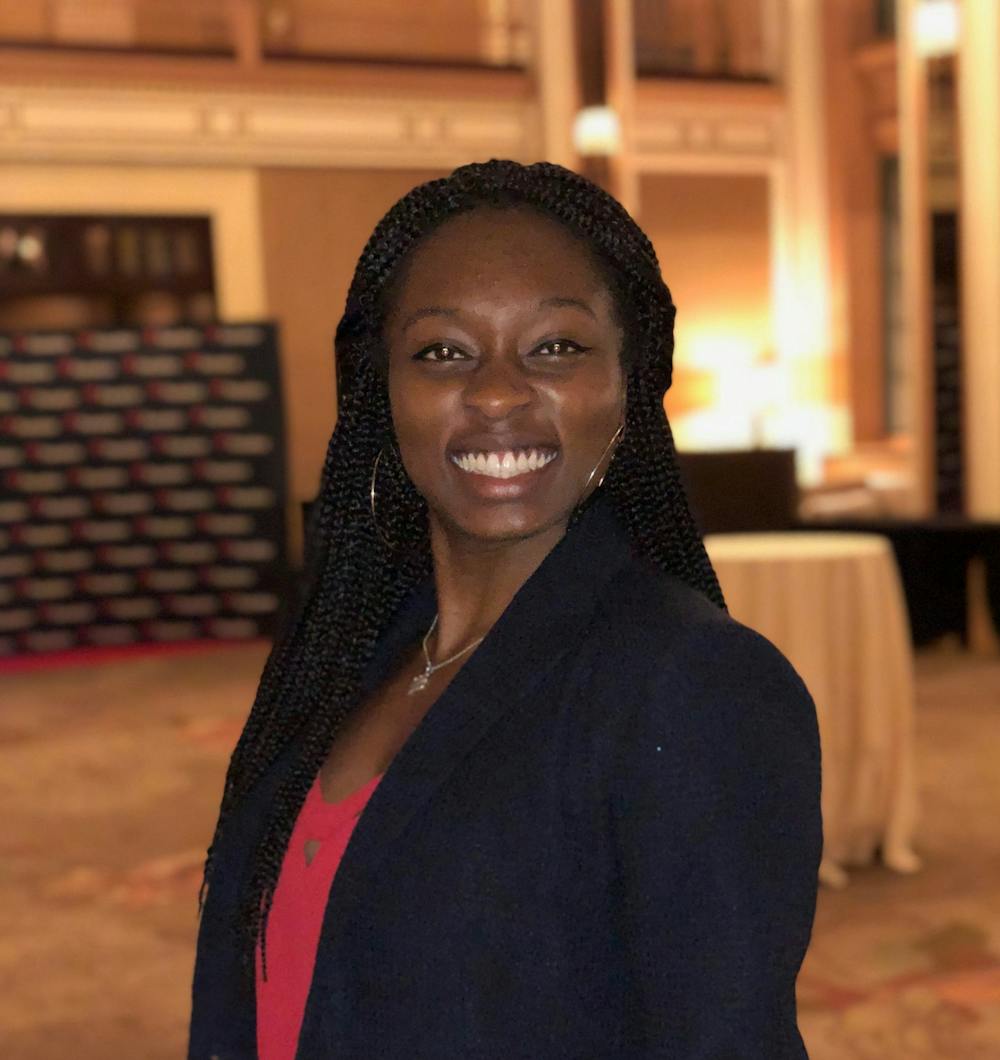“My goal was to push the boundaries of RHA leadership’s thinking and let them know that — yes, we are a University-sponsored organization, and there’s responsibility that comes with that — but we are also students and people of character and we stand up for what’s right and our values,” Griffith said.
Sophomore Max Lewin is the RHA’s current executive social justice advocate. He said Griffith has inspired and helped him grow as a leader.
“She has such a powerful presence,” Lewin said. “She is really one of the best leaders I’ve ever had the experience of working with and she completely dedicates herself to the organization.”
'Calm and steady'
Elliana Alexander, vice president of the RHA, has known and worked with Griffith for three years. She said Griffith permanently redefined the RHA and its goals, and has helped the organization navigate the chaos created by the COVID-19 pandemic.
“Throughout this whole time, she has been nothing but calm and steady, and I think that’s really helped our executive board to realize everything’s going to be OK during this time,” Alexander said.
The pandemic required Griffith to reimagine the RHA in a virtual space this year. Chancellor Kevin Guskiewicz invited her to speak and give a student perspective on fall reopening plans several times over the summer, she said.
And while those experiences gave her insight on other student leadership on campus, Griffith said it was also a stressful time.
“It was expected that I always be on and able to answer questions in the most representative way and speak well, not just for myself or my executive board, but for the thousands of students who were planning to return to campus,” she said. “So, that definitely was a lot of pressure.”
Griffith said it was especially difficult for her to continue in her role as president while Black Lives Matter protests were ongoing, and while seeing difficult images and videos on social media depicting what was happening to Black people in the United States and in her community.
“When George Floyd was killed, that was the hardest part,” she said. “I had to keep on going and make sure that the RHA put out a statement and that we had things to share with the Carolina community about not just how wrong these things are but also what UNC can do to improve, because UNC has a lot of work to do as well.”
Griffith’s main goals for the remaining academic year are to keep RHA programming going and to be vocal about campus issues, as well as to ensure student representation in University decision making.
To get the day's news and headlines in your inbox each morning, sign up for our email newsletters.
“We have a duty to make sure that the student voice is represented to Carolina Housing and to University administration overall,” she said.
Her role as president is a big responsibility, especially during this time and given her identity, Griffith said.
“Coming from where I come from and being a Black woman at Carolina, I think that has given me a unique perspective that has really been a value to the organization,” she said.
'One of the greatest leaders I've ever seen'
Outside of the RHA, Griffith is majoring in neuroscience and minoring in music and chemistry. She is combining these interests in her research, as her thesis project will explore the effect of music on attention in young adults.
Griffith is currently applying to medical schools. She said she plans to use her medical training to reinvest her time and resources into her hometown of St. Croix.
“My long term goal is to build a private hospital there and alleviate a lot of the health care disparities that exist in that area,” she said. “I also want to work with other marginalized communities in other spaces around the globe and be a mentor for younger students who are members of underrepresented communities.”
Watkins, Griffith’s mentor and adviser through the Chancellor’s Science Scholars program, said she is redefining what it means to be a scientist through her commitment to science and activism.
“Even as a scientist whose job it is to advance knowledge, she still finds some kind of way to be one of the greatest leaders I’ve ever seen,” Watkins said.
@sararaja_
university@dailytarheel.com



